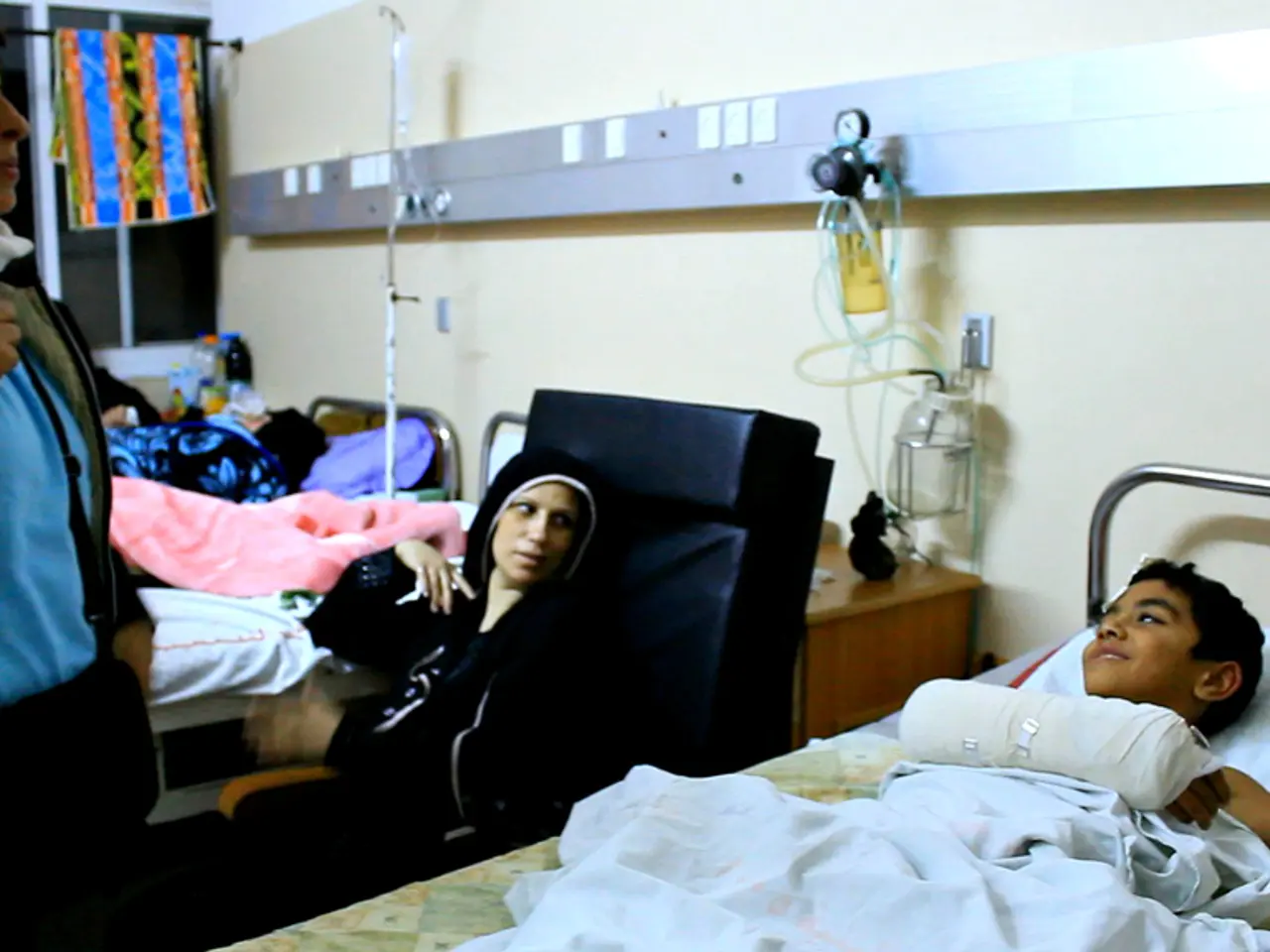Scotland's introduction of virtual hospital beds signifies the start of a technological revolution in healthcare.
Scotland's Hospital at Home Service Expands with Digital Care Revolution
Scotland's Hospital at Home service is undergoing a significant expansion, aiming to provide 2,000 virtual beds by December 2026. This expansion is backed by an £85 million investment focused on frontline NHS frailty services.
The initiative primarily serves frail, older patients with acute health issues such as respiratory and cardiac conditions, infections, or post-fall care, enabling them to receive hospital-equivalent care safely at home. In 2024-25, the service prevented approximately 15,470 hospital admissions, saving the NHS in Scotland over £50 million and avoiding around £16.7 million in healthcare costs due to the generally lower cost of home care compared to traditional hospital admission.
NHS Greater Glasgow and Clyde (NHS GGC) and digital health company Doccla are partnering to launch 1,000 virtual ward beds in Scotland. This partnership will allow NHS GGC to deliver the right care in the right place for their patients, as stated by NHS GGC's Chief Executive, Prof Jann Gardner.
The partnership between NHS Scotland and InnoScot Health, a long-standing partner for 23 years, continues to play a crucial role in increasing capacity across the country through the virtual ward beds program. The program leverages Doccla's real-time remote monitoring technology, ensuring patients receive continuous care and quick, informed decision-making by clinicians.
First Minister John Swinney pledged to expand the Hospital at Home initiative by at least 2,000 beds before the end of 2026. He emphasized the personal and efficient nature of this care model and its beneficial impact on elderly patients. The expansion of the Hospital at Home initiative aims to increase the effective capacity of every hospital in Scotland without the need for new bricks and mortar.
Graham Watson, the Scottish Government's Director General for Health and Social Care, emphasized the importance of involving patients in their own care decisions and enabling clinicians to take informed actions more quickly. He stated that the introduction of more virtual hospital wards across the country will represent a tech-led revolution in healthcare delivery.
The phased approach to implementation is expected to commence this summer as part of a three-year strategic program. Scotland's Hospital at Home service represents a major shift towards digitized, integrated community care within Scotland's NHS system.
[1] Scottish Government press release: https://www.gov.scot/news/hospital-at-home-expansion/
[2] NHS Greater Glasgow and Clyde press release: https://www.nhsggc.org.uk/news/2022/04/nhs-greater-glasgow-and-clyde-and-digital-health-company-doccla-to-launch-1000-virtual-ward-beds-in-scotland/
- The expansion of Scotland's Hospital at Home service, aiming to provide 2,000 virtual beds by December 2026, is a significant part of the digital health revolution in patient care.
- Technology plays a crucial role in this transformation, as the partnership between NHS Scotland and InnoScot Health, and the collaboration between NHS Greater Glasgow and Clyde (NHS GGC) and digital health company Doccla, use real-time remote monitoring technology to ensure continuous care for patients.
- The focus on health-and-wellness, fitness-and-exercise, and nutrition is also integral to this digital care revolution, as Graham Watson, the Scottish Government's Director General for Health and Social Care, emphasizes the importance of involving patients in their own care decisions to facilitate informed actions by clinicians.
- This tech-led revolution in healthcare delivery, following the phased implementation starting this summer, is expected to be a major stride towards integrated community care, merging science, artificially intelligent systems, and traditional patient care practices within Scotland's NHS system.




